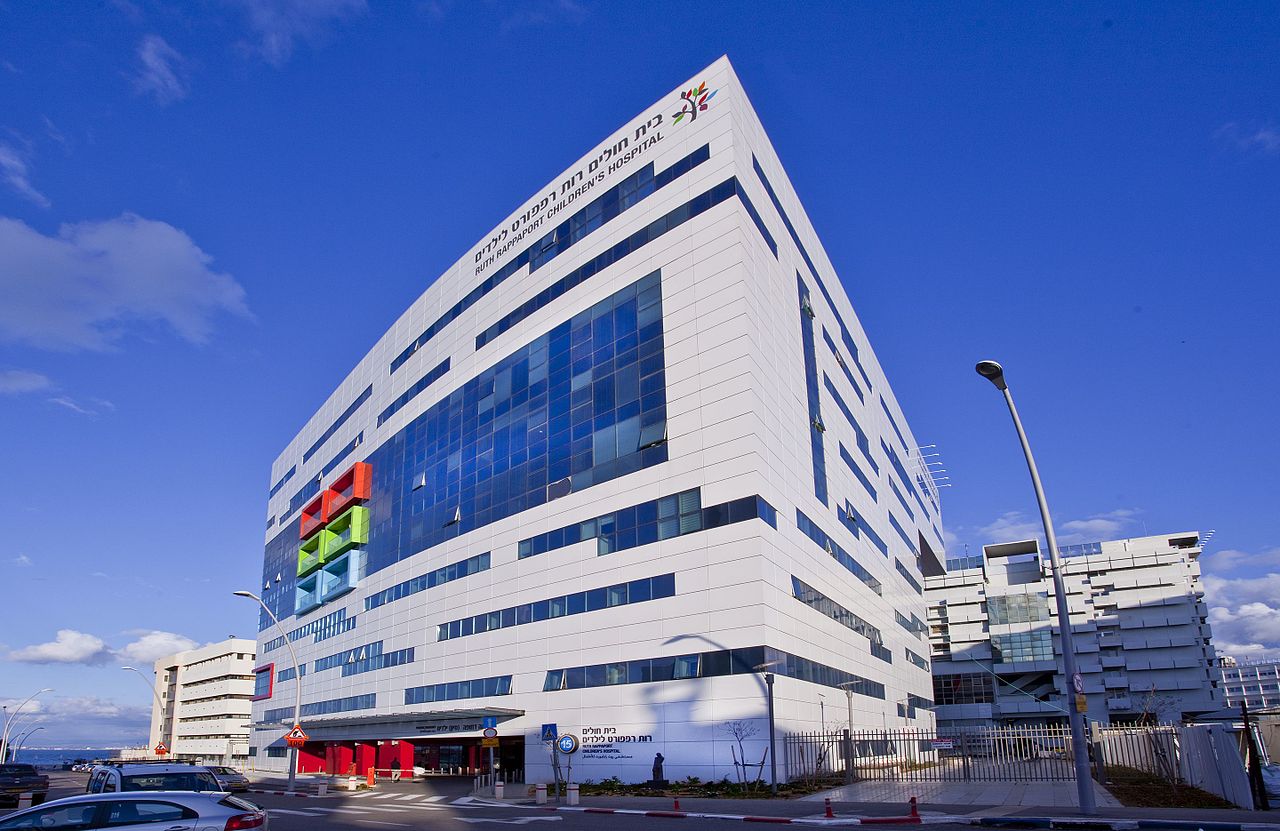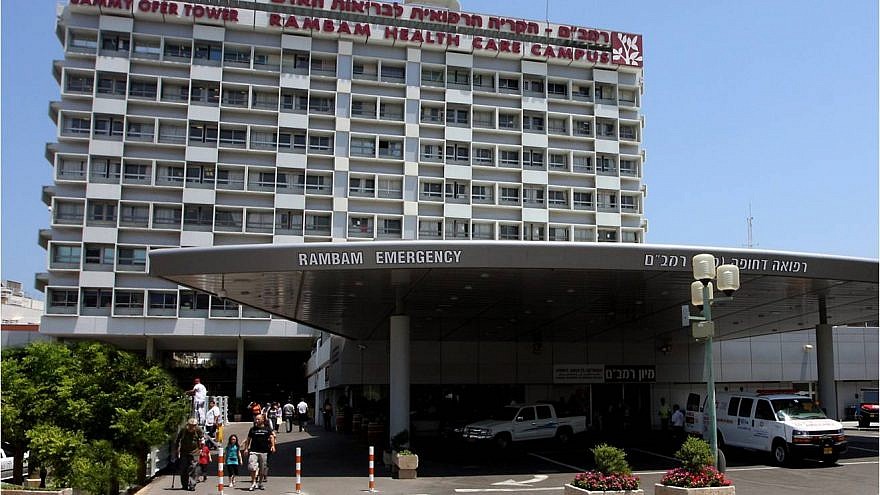As Israel celebrates its 70th anniversary, its largest hospital in the north celebrates its 80th anniversary, mirroring the Jewish state’s rise to prominence in innovation and security.
While Israel is indeed known as an innovation hub and its security expertise is exported all around the world, its hospitals may not be the first to come mind as the typical stronghold of innovation in health care and security. But the Rambam Hospital in Haifa is breaking stereotypes of traditional hospitals.
Rambam is the only Level 1 trauma center in the region, and northern Israel’s most important medical and innovation hub, which serves more than 2 million Israelis, in addition to Palestinians and Syrians critically injured in the nearby war-weary country.
The new Sammy Ofer Fortified Underground Emergency Hospital—the largest of its kind in the world—is just one of the freshest innovations coming out of the hospital. The $100 million underground facility is battle-tested, and equipped to ensure the safety of its patients and medical personnel in times of extreme conflict.
Opened in April of 2014, the 1,740-bed underground hospital was designed based on lessons learned from the Second Lebanon War, when 60 rockets fell within a half-mile radius surrounding Rambam. Its three-level, 1,500-vehicle underground parking lot converts to a 1,740-bed hospital within 72 hours.
But the facility is not just serving northern Israel in times of extreme emergency, such as war. Today, part of its lowest floor has been set up with isolation equipment, ready at a moment’s notice to care for suspected or diagnosed Ebola patients.
“Our vision is to provide beyond necessity,” Dr. Erez Carmon, a resident and hospital administrator, told JNS. “In addition to this underground facility, we take in 800 severe trauma patients per year—more than double any other hospital in Israel. We have enough room to provide services for all of the northern patients for neonatal ICU and delivery rooms.”
‘Like a playground for inventions’
According to Carmon, like many Israeli technologies, the underground hospital has already attracted hundreds of medical professionals from around the world who are requesting Rambam’s knowledge and experience in both building fortified infrastructure and trauma training.
The hospital is also home to health-care programs that foster innovation among the medical staff, with the support of collaborations among industry leaders and academics.
Nadav Ben-Haim, Rambam’s business development manager, advances and commercializes intellectual property created by Rambam’s staff, and promotes inventive thinking and innovation through Rambam programs like “Spark” and Rambam’s Innovation Lab.
Rambam’s Spark program, managed by Rambam MedTech, offers modest funding and aid with patent applications for early-stage ideas started by Rambam physicians, who assemble an interdisciplinary team of engineers, scientists, medical-device companies, academics and business individuals to identify needs and develop solutions together.
Its Innovation Lab is a shared space with advanced 3D scanners, printers and software free for Rambam physicians to use, together with biomedical engineers, in order to problem-solve challenges in their fields.

“The idea is to allow the physicians to experiment, prototype and verify their ideas—and to support the ideation process like a playground for inventions,” Ben-Haim told JNS.
He estimates that 15 to 20 projects have been initiated in the innovation lab, including a new device for gastric-bypass surgeries. He hopes that these projects could create value for and influence the city, region and the country, while providing an economic value to the hospital as breakthroughs are commercialized and create revenue.
“Innovation is very important in the medical field today,” said Ben-Haim. “There is a clear need for breakthrough in medicine.”
He continued, “Medicine is often revolutionized by physicians who decided to do something differently. With inventions, the potential is huge to treat millions of people worldwide.”
Moreover, said Ben-Haim, fostering innovation is a channel for creativity. “Having opportunities to be creative makes physicians happier and more satisfied with their work [in creating] new devices. They become more aware of the technologies and companies around them, fostering curiosity, joy and empowerment.”
To Israelis, added the business development manager, this all comes very easy. “Everyone thinks they are an entrepreneur here in Israel—and some have to be convinced otherwise—but in other countries, it goes the other way around.”
It also comes naturally, he said, because “deep within Israeli culture are the Jewish values of chutzpah, having a sense of humor and asking questions, which are very important for innovation.”
Even in a hospital, maintained Ben-Haim, “we don’t take things too seriously, we question our superiors, and we are always thinking of better ways to do things out of necessity. We create opportunities and companies for ourselves, and because it’s a small country, collaborations are easy to come by.”


























